This session is co-organised by the United Nations University Institute for the Advanced Study of Sustainability (UNU-IAS) and IGES, supported by the Ministry of the Environment, Japan. It will focus on how the concept of socio-ecological production landscapes and seascapes (SEPLS), as promoted under the Satoyama Initiative, can contribute to transformative change towards the vision of “societies in harmony with nature”, particularly considering impending new realities in the post-COVID-19 era. Transformative change means innovations that will effect society-wide transitions, and to create the change we want will require strengthening connections between humans with nature. Landscape and seascape management can be carried out while delivering sound social and ecological outcomes and improving resilience in the face of serious threats including climate change and infectious diseases like COVID-19. The session will feature remarks from Prof. Shinobu Yume Yamaguchi of UNU-IAS and a keynote speech by Prof. Kazuhiko Takeuchi of IGES and UNU-IAS, followed by cases presented by partners in Viet Nam and the Philippines and a presentation by UNU-IAS. There will also be a moderated discussion consolidating lessons on the SEPLS concept and its relevance for the post-COVID-19 era, as well as implications for the post-2020 Global Biodiversity Framework.
Research Manager, Natural Resources and Ecosystem Services, IGES
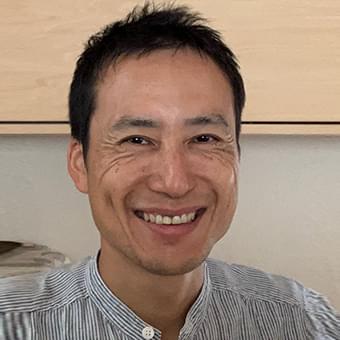
Yasuo Takahashi
Research Manager, Natural Resources and Ecosystem Services, IGES
An expert in ecology and ecosystem services valuation. Involved in the Intergovernmental Science-Policy Platform on Biodiversity and Ecosystem Services (IPBES) Regional Assessment of Biodiversity and Ecosystem Services for Asia and the Pacific as a fellow, as well as in the IPBES Global Assessment of Biodiversity and Ecosystem Services as a contributing author. Also been engaged in the Satoyama Initiative, a global network of practitioners to promote biodiversity conservation in production lands and seas. BSc from the Faculty of Agriculture, Hokkaido University, and MSc from the Darrell Institute for Conservation Ecology, University of Kent, UK.
Director, United Nations University Institute for the Advanced Study of Sustainability (UNU-IAS)
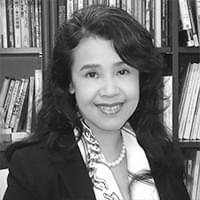
Shinobu Yamaguchi
Director, United Nations University Institute for the Advanced Study of Sustainability (UNU-IAS)
Dr. Yamaguchi assumed leadership of UNU-IAS in November 2019. Her fields of specialisation include international development and cooperation, ICT in education, reform and policy of education, science and technology policy, and the application of technology in world heritage site preservation. In addition to this post, Dr Yamaguchi currently works at Tokyo Institute of Technology. In 2005‒2007, she concurrently served as Advisor to the President.
Before joining UNU-IAS, Dr Yamaguchi worked for the United Nations Educational Scientific and Cultural Organization (UNESCO), first at the Paris headquarters, and then in the Beijing Office. While with UNESCO, she was involved primarily in the development of education systems in China, Indonesia, Mongolia, and Pakistan.
Dr. Yamaguchi holds a PhD in Economics of Education from Columbia University.
President, IGES
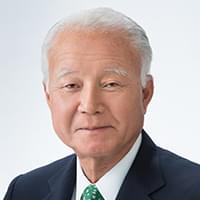
Kazuhiko Takeuchi
President, IGES
Kazuhiko TAKEUCHI graduated from the Department of Geography, the University of Tokyo in 1974. He obtained M.Agr. and Ph.D. from the Graduate School of Agriculture, the University of Tokyo. He served as a Professor at the Asian Natural Environmental Science Center, and as Professor at the Graduate School of Agricultural and Life Science at the University of Tokyo from 1997 to 2012. He also served as a Vice-Rector and Senior Vice-Rector at the United Nations University from 2008 to 2016.
From 2016, he has served as a Senior Visiting Professor at United Nations University Institute for the Advanced Study of Sustainability (UNU-IAS). He was Director and Professor/Project Professor of IR3S at the University of Tokyo from 2017 to 2019. He has served as President, Institute for Global Environmental Strategies (IGES) since July 2017. He took up the position as Project Professor of the Institute for Future Initiatives (IFI) at the University of Tokyo in April 2019. He has served, inter alia, as Chair of the Central Environmental Council, Government of Japan, Editor-in-Chief of the journal Sustainability Science (Springer Nature) and Distinguished Chair, Wangari Maathai Institute for Peace and Environmental Studies, University of Nairobi.
He specialises in landscape ecology, landscape planning, and sustainability science.
Researcher, Program Manager, Community Entrepreneur Development Institute (CENDI)
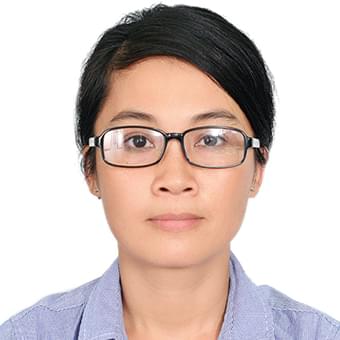
Kien Dang
Researcher, Program Manager, Community Entrepreneur Development Institute (CENDI)
Kien Dang had a Bachelor of Science (Environmental Management and Geography, 2006), followed by a Master of Science (Forestry Science and Management, 2013) at the Australian National University. She has worked for Social Policy Ecology Research Institute (SPERI) since 2006 and has been responsible for Research and Development and Publications program as well as Farmers Field School’s program included HEPA Eco-farming school. Her action-research, applied training and also advocacy have committed to strengthening local initiatives and traditional wisdom in forest use and governance, empowerment and skills enhancement for indigenous minority youths towards ecological farming, forest protection, ecological conservancy and biodiversity protection.
Since 2015, I have worked for CENDI: specialized in forestland tenure projects in many communities throughout Vietnam; and also forest protection for ecosystem services and biodiversity. At HEPA Eco-farming school, I have joined setting up the operational direction of HEPA Eco-farming school since 2006, and will be overseeing HEPA for capacity building and further engagement in long-term monitoring of forest biodiversity.
Professor, University of the Philippines Los Baños, Department of Social Forestry & Forest Governance, College of Forestry & Natural Resources
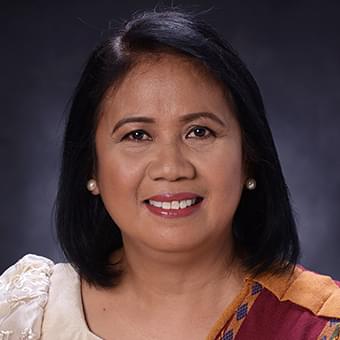
Leni Diamante Camacho
Professor, University of the Philippines Los Baños, Department of Social Forestry & Forest Governance, College of Forestry & Natural Resources
Dr. Leni D. Camacho is a Professor at the Department of Social Forestry and Forest Governance, College of Forestry and Natural Resources (CFNR), University of the Philippines Los Baños (UPLB), College, Laguna, Philippines. The University of the Philippines System awarded her as UP Scientist 1 from 2013-2015 and 2017-2019. She finished her PhD in Environmental Studies (major in Environmental Economics) from Macquarie University, Sydney, Australia in 2001. Her research achievements in natural resource/forestry economics and social forestry are in the areas of mangrove ecosystems, forest traditional knowledge, agroforestry, biodiversity conservation and climate change, with research network partners in the Philippines, Korea, Japan, India, China and the ASEAN Region.
United Nations University Institute for the Advanced Study of Sustainability (UNU-IAS) Research Fellow, International Satoyama Initiative
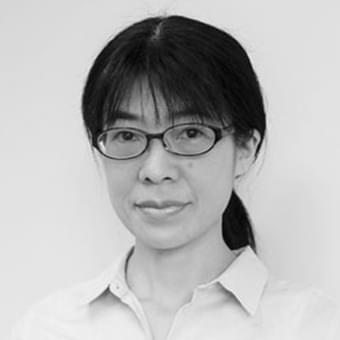
Maiko Nishi
United Nations University Institute for the Advanced Study of Sustainability (UNU-IAS) Research Fellow, International Satoyama Initiative
Maiko Nishi joined UNU-IAS as a Research Fellow for the International Satoyama Initiative in May 2019. Her area of research interest includes social-ecological system governance, local and regional planning and agricultural land policy. In particular, her interest lies in multi-level governance, land tenure and use, and subjectivities of institutional actors in governing natural resources. She began her career as a consultant in urban planning and experienced both domestic and overseas projects related to participatory planning, rural water supply and regional development. She also engaged in the follow-up to the Millennium Ecosystem Assessment, including a multi-stakeholder assessment on the interaction between humans and ecosystems in Japan. She holds a PhD in Urban Planning from Columbia University.
Senior Communications Coordinator, United Nations University Institute for the Advanced Study of Sustainability (UNU-IAS)
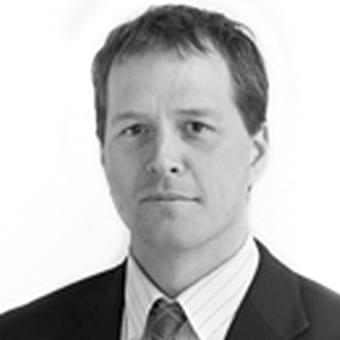
William Dunbar
Senior Communications Coordinator, United Nations University Institute for the Advanced Study of Sustainability (UNU-IAS)
William Dunbar is Senior Communications Coordinator at the United Nations University Institute for the Advanced Study of Sustainability (UNU-IAS) in Tokyo, where he works in the International Satoyama Initiative project. Before joining UNU, he worked as a translator, editor and writer in both private- and public-sector enterprises, and also worked for many years in educational and academic fields. William holds a Bachelor of Arts in Anthropology from The Colorado College and a Master of Arts in Asian Languages and Cultures from the University of California, Los Angeles.
TORII Toshio, Director General of Nature Conservation Bureau at the Ministry of the Environment of Japan (MOEJ)
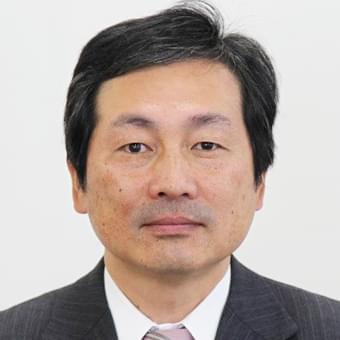
TORII Toshio
TORII Toshio, Director General of Nature Conservation Bureau at the Ministry of the Environment of Japan (MOEJ)
Mr. TORII Toshio is serving as Director General of Nature Conservation Bureau at the Ministry of the Environment, Government of Japan since July 2019.
After graduating from Kyoto University, Faculty of Agriculture, he joined the then Environment Agency in 1984, and worked at Ranger Office in various areas. From 2009 to 2010, he served as Director of Global Biodiversity Strategy Office and contributed to the success of CBD-COP10 held in Nagoya, Aichi in 2010. After the Great East Japan Earthquake, Mr. Torii worked as Director of Tohoku Regional Environment Office before working as Director of the Natural Environment Planning Division and Deputy Director-General of Minister's Secretariat.